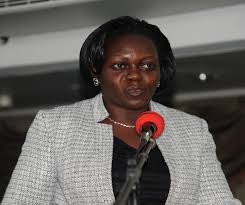Ugandan and Kenyan embryologists are to receive additional training in Indonesia, supported by leading science and technology company, Merck.
According to a release by Merck, under the African Embryologists Training Program, the selected candidates from both countries will train at the Indonesian Reproductive Science Institute (IRSI), in a bid to build fertility care capacity in Africa.
The training is part of the ‘Merck More than a Mother’ is a pan-African initiative and campaign aimed at improving access to quality and safe fertility care across the African continent.
It also opens a dialogue to define interventions to reduce the stigma and social suffering of infertile women in Africa which includes discrimination and physical and psychological violence.
‘Countless women in Africa face fear, abuse and discrimination every day simply because they are infertile,’ said Belén Garijo, a member of the Executive Board of Merck and CEO Healthcare, said March 8, the International Women’s Day.
Garijo added: “After Kenya, we are proud to launch the More than a Mother campaign in Uganda and work with the Ministry of Health, the medical community and parliamentarians to change perceptions and reduce the harsh social suffering of infertile women in Africa.”
The campaign was first implemented in Kenya in 2015 and is being rolled out this year in Uganda, in collaboration with the Ministry of Health, Uganda Women Parliamentary Association (UWOPA) and Africa Fertility Society (AFS) and will progressively be rolled-out in more African countries.
The Minister of State for Health for Uganda Sarah Opendi emphasized during her speech: “We are happy to partner with reputable and innovative companies such as Merck. We believe that ‘Merck More than a Mother’ campaign addresses a very sensitive topic for the first time in Africa, we all know it is there but no one wants to talk about it. This initiative will help to empower infertile women by improving access to information and change in the culture and mind set.”
“Most Sub-Saharan African countries don’t have trained embryologists hence providing training to our embryologists will contribute significantly to improve the quality and accessibility to fertility care to couples in Uganda and Africa so that they can start their families,” Ms Opendi, who also doubles as the ‘Merck More than a Mother’ campaign ambassador, added.
Betty Amongi, the Chairperson of Uganda Women Parliamentary Association emphasized: “We will partner with Merck and Ministry of Health to define policies to improve access to safe and effective fertility care, address the need for interventions to reduce stigmatization and social suffering of infertile women and raise awareness about male infertility and the necessity for a team approach to family building among couples”.
Hon Joyce Lay, a Member of Parliament and ambassador of the campaign in Kenya, has joined hands with Uganda Ministry of Health and Uganda Women Parliamentary Association to raise awareness about prevention of infertility and male infertility. Lay emphasized: “In order to improve access to safe and effective fertility care, a discussion with the relevant authorities will be needed to discuss the strengthening of infertility services, education, auditing, regulation, community awareness and the need to integrate them in programs which already exist in the local health infrastructure.”
Dr. James Olobo-Lalobo, Vice-President of Africa Fertility Society stressed: “We are very happy to partner with Merck, through this historic campaign, ‘Merck More than a Mother’ where specialized practical training for our embryologists will be provided and awareness about prevention of infertility and male infertility will be raised across the continent for the first time in history. Together with Merck, we can challenge the perception about infertile women, their roles and worth in society, both within and beyond the medical profession in order to achieve any systemic shift in the current culture of gender discrimination in the context of fertility care”.
Dr. Oladapo Adenrele Ashiru, President of Africa Fertility Society explained: “In Nigeria where I practice, infertility is caused by infections in over 85% of women, like in the rest of Africa, compared to 33% worldwide which emphasizes the importance of prevention programs in Africa. Therefore, our partnership with Merck is very essential to address this sensitive topic for the first time in the continent”. “We are going to host this important campaign in Nigeria and many other African countries this year,” he added.
Meanwhile, Merck has also awarded Berna Amullen, a Ugandan woman, who openly shared her story of stigmatization and suffering for being infertile. The award was in recognition of her courage in creating awareness and sharing her devastating experience so that no other woman would suffer the same.








